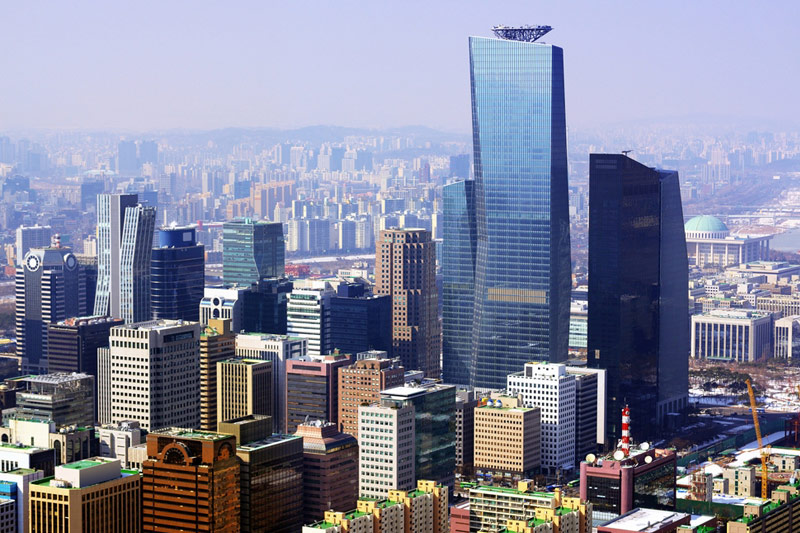By Meeyoung Cho SEOUL (Reuters) - South Korea will on Friday announce plans to scrap caps on rice imports from the start of 2015, instead managing shipments into the country using a system of steep tariffs, domestic media including the state Yonhap news agency reported on Thursday.
While the possible move is unlikely to spark a short-term surge in rice imports as hefty tariffs would deter buyers from making overseas purchases, it marks a key psychological shift in a politically sensitive sector and will anger farmers worried it could pave the way towards lower duty down the line.
The ministries of trade, agriculture and finance will hold a joint briefing on Friday on the country's rice import policy, spokesmen for the bodies said, declining to give details. Yonhap did not cite sources in its report.
The shift has long been expected as a 20-year-old agreement on rice import quotas with the World Trade Organisation expires at the end of 2014, with the nation under pressure to take bigger steps to open its markets for the staple grain.
"This one-sided, sudden notice without discussing with farmers is the kind of announcement you would expect in a dictatorship," said Park Heong-dae, an official from farmers' group the Korean Peasants League.
"Some managers of our group are setting up a street strike in front of the government complex to block the (agriculture) minister's announcement tomorrow."
The government has held a series of public consultations on the outlook for its rice policy.
TARIFF RATES NOT FINALISED
The level of any import duty is yet to be finalized, but government officials and industry experts have said it would likely be around 300-500 percent, bringing prices for imported rice in line with local grain.
Under the current WTO agreement, South Korea must buy 408,700 tonnes of foreign rice this year, or 9 percent of its demand. The amount that must be purchased abroad has gradually increased from 51,000 tonnes in 1995.
China usually accounts for 50-60 percent of total imports, the United States for 20-30 percent and Thailand for 10-20 percent, government data shows.
Of the 159 WTO members, only South Korea and the Philippines have tight controls on rice imports. The Korean government, farmers and civic groups have been closely monitoring negotiations between Manila and WTO members on the future of its restrictions.
OPEN DOOR?
Opponents led by left-wing farmer groups have said the tariff would eventually fall via free trade deals, opening the door to more imports and hitting domestic growers hard.
"We have many concerns about whether the duty can really stay at 300-500 percent levels as the government now vows, because the agriculture ministry's roles include not only stabilising production but also helping provide food at low cost for the country's people," a farmer said at a public consultation in June.
A free trade agreement between South Korea and the United States took effect in March 15 last year, while Seoul has been in talks with China on a similar deal and also wants to join the Trans-Pacific Partnership trade pact.
Officials at the agriculture ministry have said, however, that rice would be excluded from any free trade agreements.
South Korea aims to produce 4.15 million tonnes of rice in the crop year that ends in October 2015, down 2 percent from a year earlier as the number of rice fields shrinks, a government official said in April. Its appetite for the grain is estimate at 4.07 million tonnes during the crop year.
GLUTINOUS
An eventual pick up in imports has the potential to benefit Chinese growers, who produce the glutinous Japonica variety of rice preferred by South Koreans and found in traditional dishes such as bibimpap.
But a source at China's agriculture ministry has said the country would focus on its own food security and would not increase rice exports to South Korea even if caps were removed.
The United States also exports Japonica, although market participants in South Korea said Chinese rice is closer in flavor to locally grown grain. According to South Korean customs and government data, Thai rice in 2013 fetched an average of $566 per tonne on a cost, insurance and freight (CIF) basis - about a quarter of South Korean rice prices. U.S. rice cost $723 per tonne and Chinese $972, the numbers showed.
Meanwhile, some experts noted that any policy change would come against a background of gradually declining rice consumption in Asia's fourth-largest economy, as more Western foods creep into diets.
Data from the national statistics office showed the country's per capita rice consumption has dropped nearly a fifth in the last decade.
"South Korean eating habits are changing, we are seeing a move away from traditional rice consumption," said David Charlwood at rice industry publication Live Rice Index in Singapore.
(Reporting by Meeyoung Cho; Additional reporting by Ju-min Park, Christine Kim, Chris Lee in Seoul, Naveen Thukral in Singapore and Niu Shuping in Beijing; Editing by Joseph Radford)
